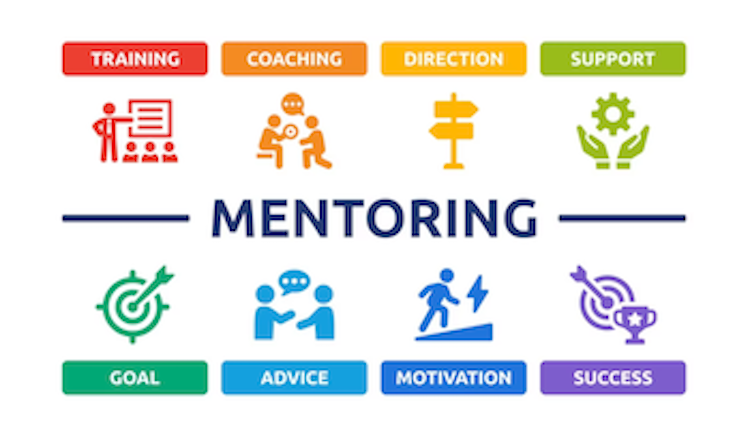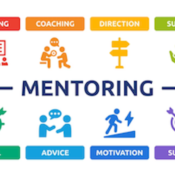
The Need for Consistent Mentorship in the Life of a Male Youth
In a rapidly evolving world, the journey from boyhood to manhood is fraught with challenges and uncertainties. For male youths, navigating this path often requires guidance and support beyond what is traditionally offered by family and school systems. The Ibileye Male Child Wellbeing Foundation recognizes the transformative power of consistent mentorship in shaping the futures of young men. Here, we explore the profound impact mentorship can have on their personal, academic, and professional development.
The Role of Mentorship
Mentorship is a dynamic and reciprocal relationship wherein an experienced individual (the mentor) offers guidance, support, and knowledge to a less experienced person (the mentee). This relationship fosters personal and professional growth through the sharing of experiences, wisdom, and encouragement. For male youths, mentors can serve as role models, advisors, and confidants, helping them to navigate the complexities of adolescence and early adulthood.
Mentors instill a sense of civic duty and social responsibility, encouraging young men to contribute positively to society and become active, informed citizens.
Key Benefits of Consistent Mentorship
- Personal Development and Self-Esteem:
- Confidence Building: Consistent mentorship helps male youths develop self-confidence and a positive self-image. By having someone who believes in their potential and celebrates their successes, young men learn to value themselves and their abilities.
- Emotional Support: Adolescence is a period of emotional turbulence. Mentors provide a safe space for mentees to express their feelings and concerns, fostering emotional intelligence and resilience.
- Academic and Career Guidance:
- Educational Support: Mentors can assist mentees in setting academic goals, identifying strengths and areas for improvement, and developing effective study habits. This guidance is crucial for academic success and motivation.
- Career Exploration: Exposure to various career paths and professional networks through mentorship can significantly impact a young man’s career choices. Mentors provide insights into different professions, help set realistic career goals, and offer advice on necessary skills and qualifications.
- Skill Development and Life Skills:
- Critical Thinking and Decision Making: Mentorship encourages the development of critical thinking and decision-making skills. Mentors challenge mentees to analyze situations, consider consequences, and make informed decisions.
- Life Skills: Beyond academics and careers, mentors teach essential life skills such as time management, financial literacy, and effective communication. These skills are vital for independent and successful living.
- Positive Social Relationships:
- Healthy Relationships: Mentors model positive social behaviors and relationships, providing examples of healthy interpersonal interactions. This guidance helps mentees build and maintain meaningful and respectful relationships.
- Conflict Resolution: Learning to handle conflicts constructively is a crucial skill imparted through mentorship. Mentors offer strategies for resolving disputes and navigating social challenges.
- Community Engagement and Civic Responsibility:
- Sense of Belonging: Through mentorship, male youths develop a sense of belonging and community. Mentors encourage active participation in community activities and foster a spirit of giving back.
- Civic Responsibility: Mentors instill a sense of civic duty and social responsibility, encouraging young men to contribute positively to society and become active, informed citizens.
The Mentor-Mentee Relationship: A Lifelong Impact
The relationship between a mentor and a mentee can be life-changing. It is built on trust, respect, and mutual commitment. For mentors, the experience is equally rewarding as they witness their mentees’ growth and achievements. The benefits of mentorship extend beyond the immediate, influencing the mentee’s lifelong attitudes, behaviors, and choices.
Challenges and Considerations
While the benefits of mentorship are clear, several challenges must be addressed to ensure effective and consistent mentorship:
- Access to Mentors: Not all young men have access to suitable mentors. Efforts must be made to recruit and train mentors from diverse backgrounds to meet the varied needs of mentees.
- Sustained Engagement: Consistency is key to effective mentorship. Both mentors and mentees must commit to regular, sustained interactions to build a meaningful relationship.
- Support and Training for Mentors: Providing mentors with adequate training and resources is essential to equip them with the skills needed to support their mentees effectively.
Conclusion
The need for consistent mentorship in the life of a male youth cannot be overstated. It is a powerful tool for fostering personal growth, academic success, and professional development. The Ibileye Male Child Wellbeing Foundation is dedicated to promoting and facilitating mentorship programs that connect male youths with positive role models. By investing in mentorship, we are investing in the future of our young men, empowering them to become confident, capable, and compassionate leaders of tomorrow.
All Categories
Recent Posts
Presidents’ Welcome
+234 908 7486 805
helpdesk@imcwfoundation.org




